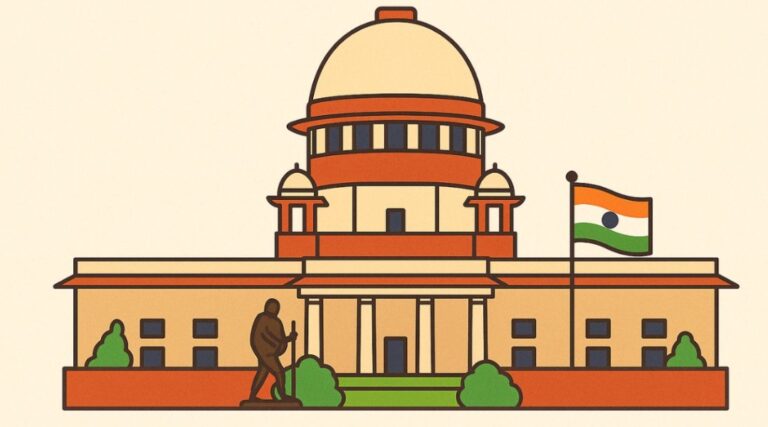In a significant reaffirmation of judicial principles, the Supreme Court of India has ruled that a High Court exercising criminal jurisdiction cannot recall or review its own judicial order, except to correct a clerical or accidental error. The decision was delivered in the case of State of Rajasthan v. Parmeshwar Ramlal Joshi, where the apex court set aside the Rajasthan High Court’s order that had improperly recalled its earlier judgment.
🔹 Key Highlights of the Supreme Court Ruling
1. Statutory Bar on Review
The Supreme Court emphasized that Section 403 of the Bharatiya Nagarik Suraksha Sanhita (BNSS) — corresponding to Section 362 of the Code of Criminal Procedure (CrPC) — imposes a clear statutory prohibition on criminal courts from altering or reviewing their own judgments once pronounced.
2. Limited Exception for Corrections
The only permissible exception is the correction of clerical or arithmetical mistakes resulting from an accidental slip or omission. Any attempt to reopen or re-evaluate the merits of a decided case falls outside the scope of judicial correction.
3. Inherent Powers Cannot Override Statute
The court clarified that inherent powers under Section 528 of the BNSS (previously Section 482 of the CrPC) cannot be invoked to bypass this statutory restriction. The High Court cannot use these powers as a means to indirectly review or modify its own final judgment.
4. Principle of Finality in Judicial Orders
Reiterating the doctrine of “functus officio”, the Supreme Court held that once a court signs and pronounces its final judgment, it becomes powerless to alter or revisit it. This ensures judicial finality and prevents endless litigation in criminal proceedings.
🔹 Background of the Case
- Initial Petition: The complainant first filed a writ petition in the Rajasthan High Court seeking a CBI investigation, but later withdrew it without permission to refile.
- Second Petition: The same complainant then filed a fresh petition with almost identical prayers, invoking the High Court’s inherent powers.
- Recall of Order: The High Court initially dismissed the second petition but later recalled its own order, citing a “clerical mistake,” and subsequently transferred the investigation to the CBI.
- Supreme Court Intervention: The apex court set aside the High Court’s recall order, holding that the recall of a substantive judicial decision under the guise of correcting a clerical mistake was legally impermissible.
🔹 Implications of the Supreme Court Decision
✅ Upholds Judicial Finality
The ruling strengthens the principle of finality in judicial pronouncements, ensuring that criminal litigation does not become an endless cycle of review and recall petitions.
✅ Limits Misuse of Inherent Powers
It provides clarity on the narrow scope of inherent powers vested in the High Courts, emphasizing that they cannot be used to circumvent express statutory provisions.
✅ Reinforces Judicial Discipline
By restating the limits of jurisdiction, the Supreme Court’s judgment ensures that judicial discipline and procedural integrity are maintained across all criminal courts.
✅ Protects Against Endless Litigation
This ruling discourages litigants from filing repetitive or disguised review petitions, preserving certainty and stability in the criminal justice system.
🔹 Conclusion
The Supreme Court’s ruling in State of Rajasthan v. Parmeshwar Ramlal Joshi serves as a landmark reaffirmation of judicial restraint and statutory discipline. By reiterating that criminal courts cannot review their own judgments except to correct clerical mistakes, the court has reinforced the principle of finality — a cornerstone of justice that prevents unending litigation and upholds the credibility of the judicial process.
